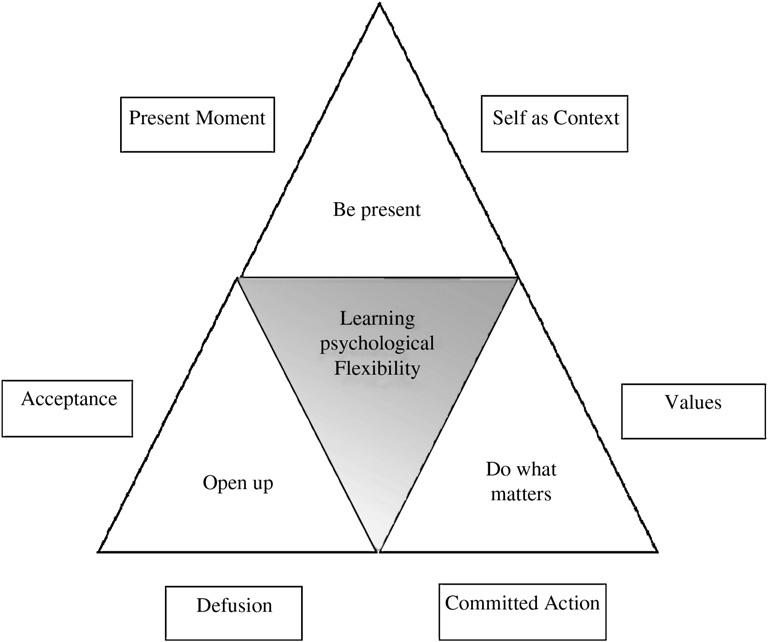Book Review: ACT Made Simple
Dr Russ Harris
I remember a few years ago when I was first introduced to ACT. I have to admit, I struggled with it initially. All this stuff about fusion and observing your self and rich, full and meaningful lives; it all felt a bit much. Fast forward a few years and several training sessions later and I have to say that ACT is transformative in its approach and has continued to be a source of revelation for many of the clients that I’ve worked with as well.
‘ACT Made Simple’ might be slightly deceptive in its title. Acceptance and Commitment Therapy (or ACT to its friends) might come across as quite straight forward, however, putting ACT into practice can sometimes highlight some of the subtle yet challenging skills that come into play during the average session.
With that, Dr. Russ Harris does have a remarkable knack for writing content that is both easy to read and to understand. The beauty of ‘ACT Made Simple’ is in the beautifully playful way in which Dr. Harris can easily engage the reader and offer them insight. ACT itself is often built on experiential exercises so even the fact that this book can convey so much in writing about experiential exercises says something about the strength of its content.
What is Acceptance and Commitment Therapy?
For those unfamiliar with ACT, allow my attempt to give you a very high-level nutshell version.
Imagine for a moment that your client comes to you with their presenting issue. Often, they will present with something that is causing them discomfort (anxiety, depression) and they may even be engaging in some habit (drinking, gambling, drugs, over eating) along with that. They’re desperately keen to escape that feeling and to no longer have to deal with it anymore. Perhaps when you ask them what they would like, they might reply with something like ‘I just want to be happy.’
Through an ACT perspective, we would say that the client is getting all tangled up in their thoughts, feelings, stories, and emotions; what is referred to as ‘fusion’. ACT doesn’t try to stop our minds from doing that. In fact, it acknowledges that this is what minds will often do and that most of our minds work in that way. It isn’t here to judge if the mind is telling you things that are true or not; more to explore if it is helpful.
In order for us to not deal with these difficult and uncomfortable thoughts and feelings, we may try to push down that discomfort through habitual activity, which is referred to as experiential avoidance. Now, again, ACT doesn’t judge experiential avoidance. In fact, it acknowledges that, at points in our life, we all do it however what ACT goes on to ask is the workability of that strategy. Is the behaviour taking you towards a life that is rich, full and meaningful or is it taking you away from the type of person you want to be and what is the cost to you both in the short term and the long term?
How does ACT work?
ACT addresses these issues through mindfulness skills and an exploration of our values. In turn, our values will act as a compass for us, guiding us towards the behaviours and goals that represent the kind of person we wish to be.
Additionally, mindfulness isn’t being used as an attempt to ‘calm’ those uncomfortable feelings but more to make room for them. In doing so, we can experience those difficult feelings without being tangled up in them, leaving us with the energy and focus to move towards the kind of person we want to be through a combination of mindfulness and our values.
Within ACT, we teach clients to DARE; defuse from their thoughts, acceptance of the discomfort that they experience, create realistic goals and to embrace values. This may mean that, within each session, we will continue to do a combination of activities that may help clients to defuse from their thoughts, finding contact with the present moment, opening up and finding acceptance, exploring what matters to them and to do what it takes through committed action, however these are often skills that go against what often feels natural for us as human beings and so it takes practice.
‘ACT Made Simple’ is absolutely packed with usable worksheets, brilliant mindfulness, and meditation exercises, and lots of metaphors that really help to illustrate some of the concepts more easily. Most importantly, the book has been written in a way that encourages the reader to do homework for themselves, to experience ACT in their lives as they’re reading the book and to practice in the moment so that it feels so much more natural and authentic when they have a client in front of them.
Most people would be more than familiar with another of book that Russ Harris has written, ‘The Happiness Trap’. While ‘The Happiness Trap’ is a classic in its own right, ‘ACT Made Simple’ has been written very much with the therapist/counsellor / mindfulness coach / ACT practitioner in mind. The final chapter that highlights tips and strategies in dealing with difficult clients and common situations highlights this perfectly and makes this easy-to-read primer even more practical.
You can purchase ‘ACT Made Simple’ from Amazon (Kindle) and Book Depository.
Dr Russ Harris offers several courses, workshops, worksheets and free downloadable goodies at his website.
You can also find some excellent ACT videos by Dr Russ Harris on Youtube.
Book Your FREE Half Hour Consultation With Release Hypnosis NOW!
Sign up to the newsletter
Powered by EmailOctopus
You may also like to read:
Book Review: The Five Second Rule
Book Review: The Consolations of Philosophy
Book Review: Healing The Shame That Binds You
Book Review: The Happiness Trap








